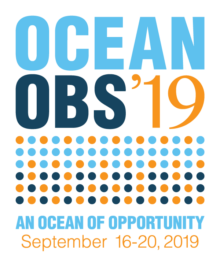
As a keen ocean advocate, I am thrilled to have been invited to speak at the OceanObs’19 conference in Hawaii next week. The conference is held once a decade – the first one having been held in France back in 2009 with around 300 participants. Momentum has gathered and around 1000 participants are anticipated to attend the event in Honolulu between 16th – 20th September.
As we are becoming more aware, the ocean plays a vital role in supporting all life on the planet. In order for the human race to prosper long term, we need to have sustainable interactions with our ocean and make significant changes.
Ocean Obs is a community-driven conference, pulling people together from all over the world to look at the progress made over the past ten years and explore innovative solutions to our growing needs in the coming decade.
To allow adequate time for questions and discussion, the conference objectives are split and there is a specific focus on each of the days.
Information: how do we meet future user needs?
Interoperability: how can we better communicate among observing systems to deliver products for users that follow usability and other best practices across the globe?
Innovation: how can we spur innovation in observing technologies, products, and user services?
Integration: how can we balance user and operator needs, capabilities, and knowledge worldwide?
The conference will welcome government representatives, international organisations, industries, scientists, engineers and anyone who lives, works and relies on the ocean (that’s everyone!) to engage in a collective effort to evolve ocean observation to generate the data and information we need for the ocean we want.
We will all benefit greatly if we work together on educational programs and developing the human, technological, and governance capacity to measure the ocean. Ongoing science, plans, models and forecasts to generate knowledge are vital as an assessment of climate change. Only by being informed can we adapt and put in place mitigating measures. Data will help reduce the impacts of extreme events and disasters, such as the recent devastating hurricane in the Bahamas. It will improve efficiency and sustainability of fishing and support ecosystem-based management. It will guide resource extraction with low environmental impact and inform policies to reduce pollution.
I am very proud to be a part of this event and look forward to some lively and interesting discussion on a subject I am passionate about.